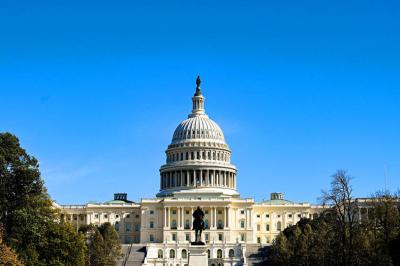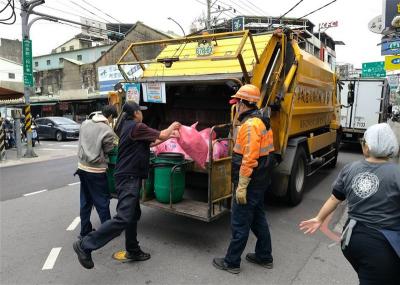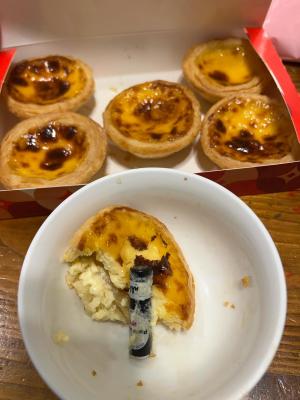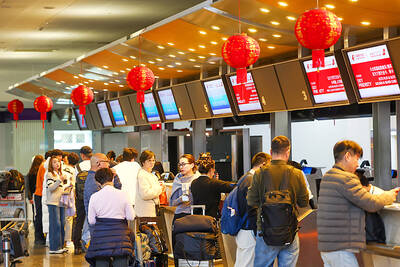President Ma Ying-jeou (馬英九) yesterday countered public concern over his cross-strait policy, saying improved cross-strait relations had strengthened the nation's sovereignty and enhanced its international profile.
Ma said those who are worried that better cross-strait ties would compromise “the sovereignty of the Republic of China” and “dignity of Taiwan” simply worried too much.
“When we improve cross-strait relations, we also restore mutual trust with Washington,” he said. “The nation's sovereignty was not weakened but rather strengthened. I am very confident about that, and I believe you think the same.”
Ma made the remarks while addressing a Lunar New Year gathering of China-based Taiwanese businesspeople in Tainan City.
Ma dismissed allegations that Washington and Tokyo were uneasy about the country's closer ties with Beijing, saying that his new cross-strait approach has been “universally welcomed.”
As the most recent dialogue between Washington and Beijing did not mention Taiwan, Ma said some might find it unusual, but in fact, “no news is good news.”
“It means it is normal and it is peaceful. It is the goal that we are striving for,” he said. “It is common sense that constant squabbling over Taiwan is bad for foreign investment in Taiwan.”
Touting Taiwan's geographical advantage, Ma said deregulation and liberalization would help build the country into a global innovation center and an Asian-Pacific business hub.
The country has wasted too much time on political disputes over the years, he said, adding that since he took office in May, he has gradually removed the obstructions and pushed for an economic restructuring.
Unfortunately, the global economic downturn has dealt a blow to the local economy, he said.
While cross-strait deregulation measures were not as effective as the administration had expected, Ma said they offered local businesses more alternatives and leverage.
“We never said China is our only hope,” Ma said. “The Chinese market is just a part of it.”
Saying the direction of his cross-strait policy was correct, Ma promised to stay the course and urged the opposition parties to support government policies that serve national and public interests.
Straits Exchange Foundation (SEF) Chairman Chiang Pin-kung (江丙坤) told reporters at the same setting that he expected to see both sides reach a consensus on at least four issues during the third cross-strait high-level talks, scheduled to be held in the first half of the year. They are financial cooperation, two-way investment, joint efforts to combat crime and regular aviation flights.
Chiang said the Mainland Affairs Council (MAC) had authorized the foundation to negotiate with its Chinese counterpart, the Association for Relations Across the Taiwan Strait, on the four issues.
The comprehensive economic cooperation agreement (CECA), however, is not on the agenda of the forthcoming talks because it is a complicated matter.
MAC Chairwoman Lai Shin-yuan (賴幸媛) said that both sides would begin the negotiation process as soon as they are ready. The administration will conduct the negotiations in a stable and practical manner, she said, and hopefully agreements will be signed.
As it is government policy to further normalize cross-strait trade, Lai said, the administration would examine and relax cross-strait regulations, hoping to build Taiwan into a management base and regional business hub.

The US House of Representatives yesterday passed the PROTECT Taiwan Act, which stipulates that Washington would exclude China from participating in major global financial organizations if its actions directly threaten Taiwan’s security. The bill, proposed by Republican US Representative Frank Lucas, passed with 395 votes in favor and two against. It stipulates that if China’s actions pose any threat to Taiwan’s security, economic or social systems, the US would, “to the maximum extent practicable,” exclude China from international financial institutions, including the G20, the Bank for International Settlements and the Financial Stability Board. The bill makes it clear that China

Garbage and recycling schedules are to vary from Saturday through Sunday next week over the Lunar New Year holiday period. The following collection information is from the governments of the six special municipalities. Taipei Regular service: Sunday to Monday next week. No service: Tuesday to Thursday next week. Extra service: Friday next week. Regular service resumes: Saturday next week. New Taipei City Extra service: Sunday. Adjusted collection time: Monday next week — garbage collection is to begin in the morning and end at 6pm. No service: Tuesday to Thursday next week. Regular service resumes: Friday next week. Note: Garbage can be dropped off at 70

A KFC branch in Kaohsiung may be fined between NT$60,000 and NT$200 million (US$1,907 and US$6.37 million), after a customer yesterday found an entire AAA battery inside an egg tart, the Kaohsiung Department of Health said today. The customer was about to microwave a box of egg tarts they had bought at the fast-food restaurant’s Nanzih (楠梓) branch when they checked the bottom and saw a dark shadow inside one of them, they said in a Threads post. The customer filmed themself taking the egg tart apart to reveal an entire AAA battery inside, which apparently showed signs of damage. Surveillance footage showed

GROUP EFFORT: The number of inbound travelers rose 11 to 12 percent last month, with a significant increase in tourists from Europe and North America, an official said The government aims to attract 9.4 million visitors this year, the Tourism Administration said yesterday, citing last year’s success in diversifying tourist markets. Taiwan last year drew about 8.57 million international arrivals, 72.3 percent of pre-COVID-19 levels. By contrast, the nation had about 18.94 million outbound tourists last year, surpassing the pre-COVID-19 level of 17.1 million. The estimated tourism revenue deficit was about NT$700.9 billion (US$22.22 billion). Taoyuan International Airport Corp expects more than 160,000 passengers to pass through the nation’s largest airport daily during the Lunar New Year holiday, which begins on Saturday. As of Jan. 30, the nation’s average hotel occupancy rate